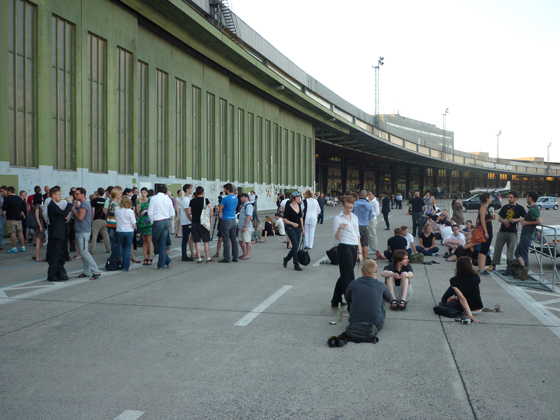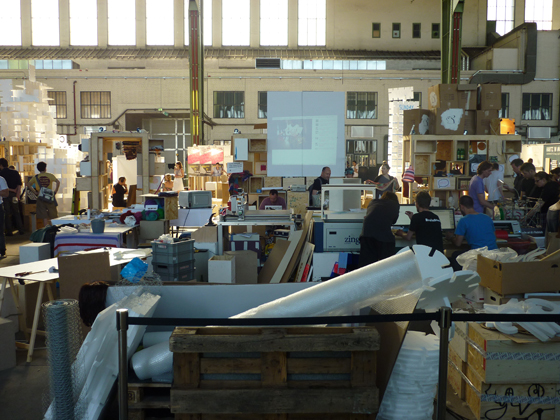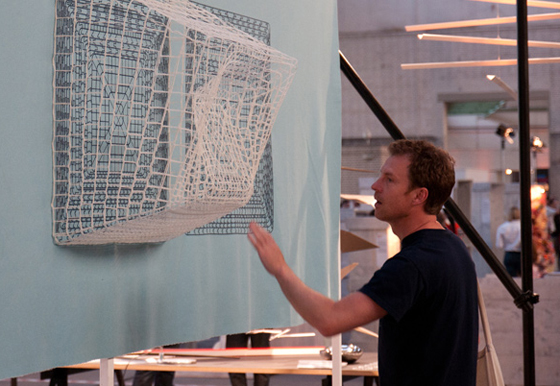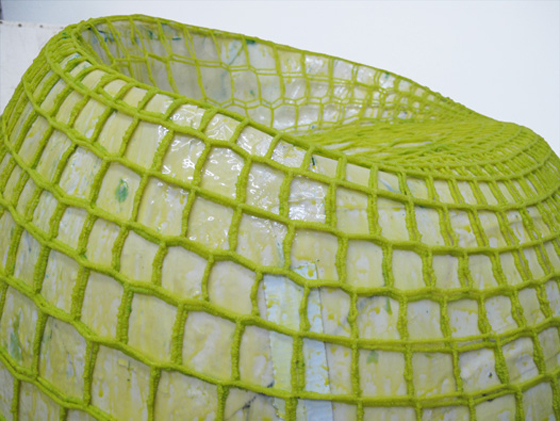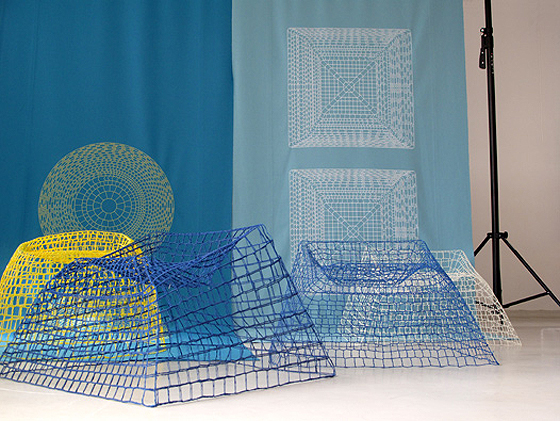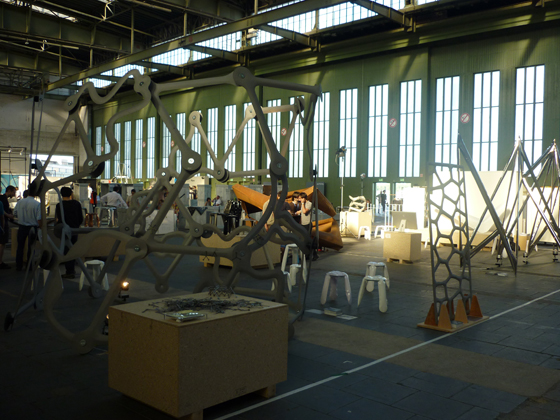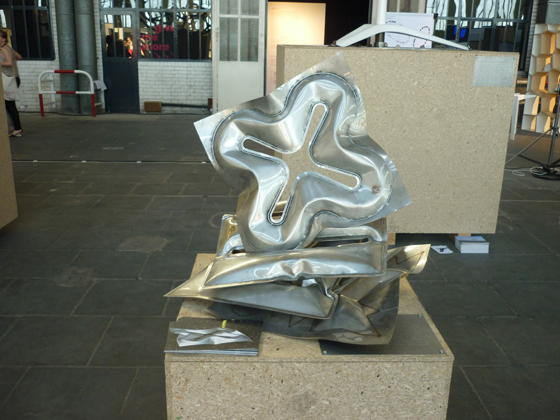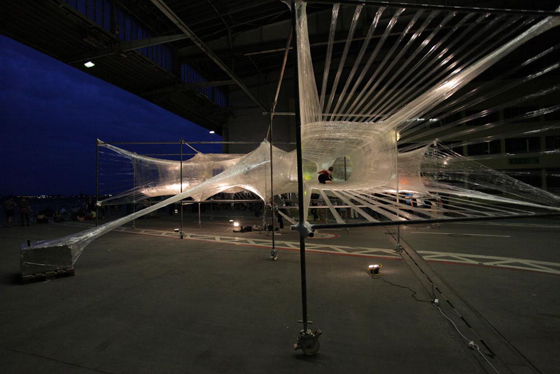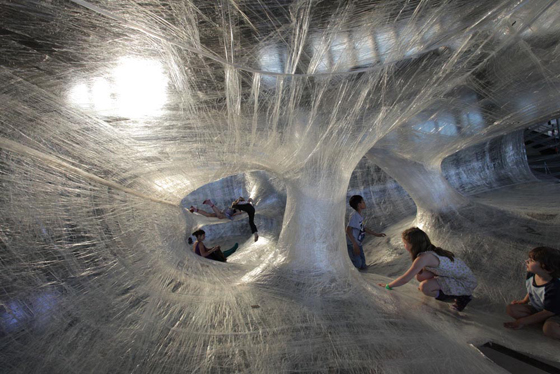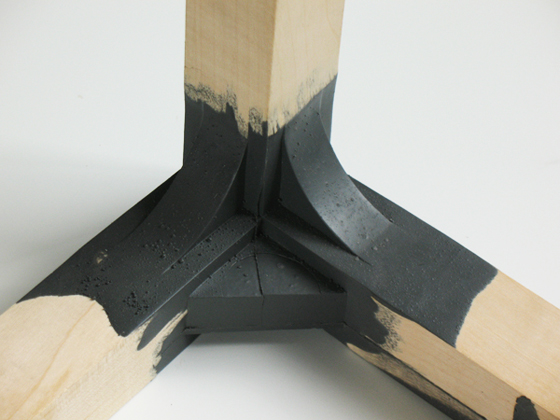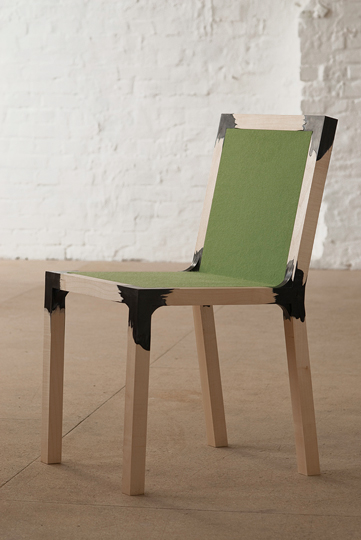DMY 2010: Architonic reports from the Berlin design festival
Text by Nora Schmidt
Berlin, Germany
25.06.10
Ernst Sagebiel's architectural matsterpiece Tempelhof Airport was the venue for this year's DMY design festival in Berlin. Architonic was needless to say there, ready for take-off.
DMY Festival: on the airfield outside Tempelhof Airport's hangar
A mere couple of weeks before its opening, it was announced that this year's DMY design festival in Berlin would take place in the historic, disused Tempelhof Airport. The change of location at such short notice from tresor m., the old, dark power station, to the light-filled hangar of the imposing former city airport was a good move for the exhibition, particularly given the summer-like temperatures. The decision by the Youngsters and the Allstars to show in one central place also benefitted greatly everyone who participated.
DMY Maker Lab: a smorgasbord of experimental structures and processes
400 designers, among them international design institutions and 17 design colleges, showed their latest projects. For the first time, a substantial part of the exhibition space was devoted to the Maker Lab. Here, visitors were offered valuable insights into modern production techniques and processes by means of a number of tasks and experiments. Despite the randomness and botched-together feeling of the space, the, at times bustling, crowds managed to lend it an inspiring workshop-like atmosphere. This concept of 'open design', that is, product development made accessible to visitors, appears to be a particular interest of DMY's organisers. It was no surprise, therefore, that visitors encountered a smorgasbord of prototypes, process-oriented projects, and formal and material studies – even at the Allstars, the show for established design studios – instead of the usual tidy exhibition booths.
Studio Aisslinger's 'NETwork' at the DMY Allstars
The Berlin studio Aisslinger showed a series of textile furniture pieces, created from the successful union of traditional finishing and high technology. Those of us who are of a certain age or whose grandmother taught them where the finest embroidery comes from will recognise the term 'Plauen point'. In collaboration with the Plauen Hand Workshop and aided by computer technology, Werner Aisslinger and his team have developed a process that allows precise, three-dimensional forms to be created using embroidered, flat fabric. Soaked in artificial resin, the web created a solid structure (even if it's not quite load-bearing) that was reminiscent of a 3-D computer wireframe image.
'NETwork' by Studio Aisslinger, in collaboration with an embroidery workshop from Plauen
Oskar Zieta's 200-square-metre space featured every aspect of the 'FiDU' technology he developed at the Swiss Federal Institute of Technology (ETH) in Zurich. For the first time, the Polish architect showed the full range of objects, prototypes and models that came out of his long-running research and development work.
Oskar Zieta and ETH Zurich exhibition at the DMY Allstars
ETH Zurich and Oskar Zieta showed products and prototypes from their FiDU process on a 200-square-metre space
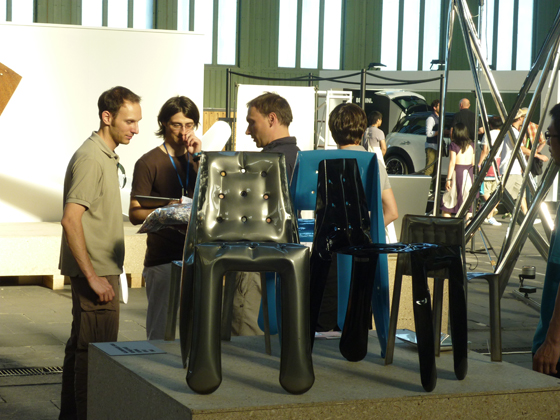
ETH Zurich and Oskar Zieta showed products and prototypes from their FiDU process on a 200-square-metre space
×The spacious exhibition venue worked less well for the Austrian-Croatian design studio Numen / For Use, if their 'Tape Installation' was supposed to fit neatly into the surrounding architecture. At Tempelhof, 45 kilometres of sticky tape had to be wound around a specially built scaffolding structure. Nevertheless, the swirling, transparent cocoon became the highpoint for every child (and every playful adult) who was there, and ended up receiving, alongside Dutch design duo Daphna Isaacs & Laurens Manders and the Swiss research institute EPFL + ECAL Lab, a DMY Award.
The poetic installation 'for those who see' by UDK (University of the Arts, Berlin) student Daniel Schulze left a lasting impression. It consisted of seven times seven blocks of concrete, which, according to the sounds around it, would emit vapour at irregular intervals.
As representative of the 'sturdy' product designers, Christof Schmidt, graduate of the Kunsthochschule in Kassel, presented his graduation project 'DaR', a completely new method of joining wood. Pieces of wood are broken to size, then inserted into a silicone form. Polyurethane foam is introduced, which, when it expands, gets into every last fibre of where the wood has been broken and, after five minutes, goes hard, forming a stable joint.
'DaR' – a new way of joining wood by Christof Schmidt
All in all, it was a joy to see how the Berlin festival, with its inspiring and interdisciplinary content, has in the last few years secured a certain position among the various international design events. One can only hope that the desired trade visitors discover this quality and turn up in great numbers in years to come.
